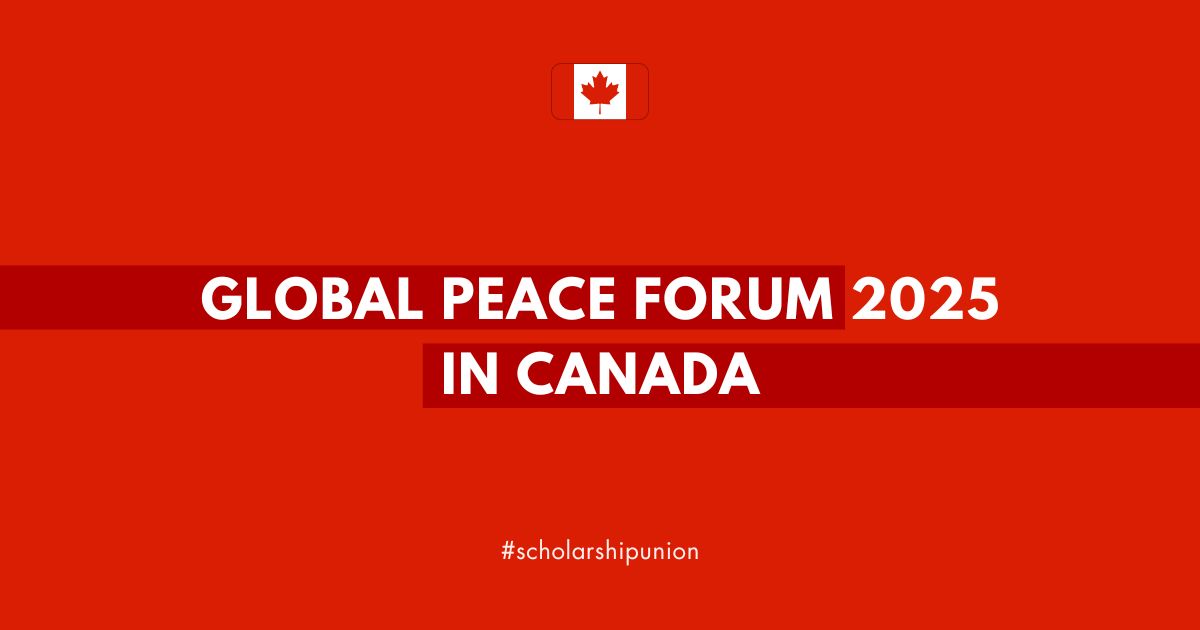Studying abroad can be a transformative experience. It’s not just about studying in a new country. It’s about experiencing a different culture, making lifelong friends, and gaining skills that will shape your future. Sounds exciting, right? But let’s be real—the cost can be a major hurdle. That’s where study abroad scholarships come in.
These scholarships are your golden ticket to turning dreams into reality. From covering tuition fees to helping with living expenses, scholarships can make studying abroad more affordable and accessible. Whether you’re an undergraduate dreaming of a semester in Paris or a grad student planning a degree in Sydney, there’s a scholarship out there with your name on it.
This guide is here to simplify the process for you. We’ll explore how to find the right scholarships, craft stellar applications, and make your study abroad dreams come true.
Table of Contents
What Are Study Abroad Scholarships?
Study abroad scholarships are financial aid designed to help students cover the costs of studying in another country. They’re offered by universities, governments, organizations, and even private donors.
Here’s a quick breakdown of common types of scholarships you’ll come across:
- Merit-Based Scholarships: Awarded for academic excellence or outstanding achievements.
- Need-Based Scholarships: Tailored for students facing financial challenges.
- Country-Specific Scholarships: Offered by governments or organizations to encourage study in specific countries.
- Program-Specific Scholarships: Focused on particular fields of study or exchange programs.
- University-Specific Scholarships: Provided by colleges to attract top international talent.
Understanding these types is like knowing the rules of a game—it helps you play smarter and increases your chances of winning.
Why Are Scholarships So Important?
Let’s face it—studying abroad isn’t cheap. From tuition to housing, and even weekend trips to explore your new home, costs can add up fast. Scholarships help reduce financial stress. They also create opportunities that may seem hard to reach otherwise.
Beyond the financial aspect, scholarships also encourage cultural exchange, global collaboration, and diversity. They help shape future leaders who can think beyond borders. That could be you!
Ready to Start Your Search?
Finding the right scholarship might seem overwhelming at first, but with the right approach, it can be a breeze. Here’s how to get started:
- Define Your Goals: What do you want to study? Where do you want to go? How much funding do you need? Having clear goals makes it easier to find scholarships that fit your needs.
- Use Scholarship Search Engines: Websites like ScholarshipUnion or ScholarshipPortal are great places to start. They offer curated lists of scholarships based on your preferences.
- Think Local: Contact your school’s financial aid office or academic advisors. They often know about scholarships that are not well advertised.
- Join the Community: Networking is key. Connect with alumni, professors, or current scholarship recipients. They can share personal experiences and point you toward opportunities you might not have discovered otherwise.
Where to Look for Scholarships
There’s no shortage of resources if you know where to look. Here are some of the best places to find scholarships:
- Online Databases: Websites like MasterPortal are treasure troves for students. They list scholarships from all over the world, making it easy to find one that matches your needs.
- University Websites: Many universities offer scholarships specifically for international students. Check out their financial aid sections for details.
- Government Programs: Countries like the UK and Australia offer scholarships like the Chevening Scholarship and Australia Awards.
- Non-Profit Organizations: Groups like the Fulbright Program and DAAD Scholarships are renowned for their funding options.
- Scholarship Blogs: Keep an eye on platforms like ScholarshipUnion for updates on the latest opportunities.
Staying Organized Is Key
With so many scholarships available, keeping track of deadlines and requirements can feel overwhelming. Here’s a simple strategy to stay on top of things:
- Create a Spreadsheet: Track scholarships, deadlines, eligibility criteria, and application statuses. Google Sheets works great for this!
- Use Calendar Alerts: Set reminders for application deadlines to avoid last-minute stress.
- Stay Consistent: Dedicate time every week to researching and applying for scholarships. Consistency pays off.
Crafting a Winning Application
The scholarship application is your chance to shine. Here’s how to make yours stand out:
- Tell Your Story: Use your statement to highlight your passions, achievements, and goals. Be authentic—people connect with real stories.
- Strong Recommendations: Ask professors or mentors who know you well to write recommendation letters. Provide them with details about the scholarship and your accomplishments.
- Polish Your Application: Proofread everything. Typos or missing information can make or break your chances.
Watch Out for Common Mistakes
Here are some common pitfalls to avoid:
- Missing Deadlines: Late submissions are a no-go. Mark those dates on your calendar!
- Ignoring Requirements: Tailor your application to fit the scholarship’s criteria.
- Falling for Scams: Be cautious about scholarships that ask for upfront fees or personal financial details.
Looking Ahead: Plan for Future Scholarships
Scholarships often open months in advance, so planning is essential. Bookmark pages like ScholarshipUnion to stay updated on upcoming opportunities.
Final Thoughts
Applying for study abroad scholarships takes effort, but it’s worth it. With careful planning and some persistence, you will be on your way to making your dream of studying abroad come true.
Start your search today, explore resources like ScholarshipUnion, and don’t give up. Your future is waiting—grab it with both hands!
Frequently Asked Questions (FAQ)
What types of scholarships are available for studying abroad?
Scholarships for studying abroad include merit-based, need-based, subject-specific, and country-specific awards.
What are the eligibility criteria for study abroad scholarships?
When should I apply for study abroad scholarships?
Application deadlines vary. It is best to start the process early. Many scholarships have deadlines months before programs begin.
What documents are typically required for scholarship applications?
Common documents you usually need are:
– Academic transcripts
– Letters of recommendation
– A personal statement or essay
– Proof of enrollment or admission
Can I apply for multiple scholarships simultaneously?
Yes, it is a good idea to apply for many scholarships. This can help you get more financial aid. Just make sure you meet the requirements for each scholarship.
Do scholarships cover all study abroad expenses?
How competitive are study abroad scholarships?
Competition varies; prestigious scholarships may be highly competitive, while others with specific eligibility criteria might have fewer applicants.
What are some renowned study abroad scholarship programs?
Notable programs include the Fulbright Program, Erasmus Mundus, and the Benjamin A. Gilman International Scholarship, each offering various opportunities for international study.
⚠️ Disclaimer
Scholarship Union shares publicly available scholarship opportunities for informational purposes only. We are not affiliated with or endorsed by any listed institution unless clearly stated.
Listings may come from public sources or user submissions. We do not guarantee their accuracy, completeness, or availability.
To report issues or request updates, please contact us here.
Discover more from Scholarship Union
Subscribe to get the latest posts sent to your email.









